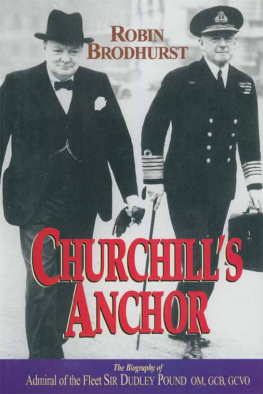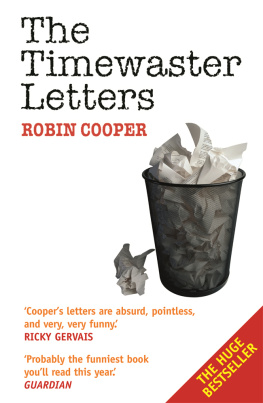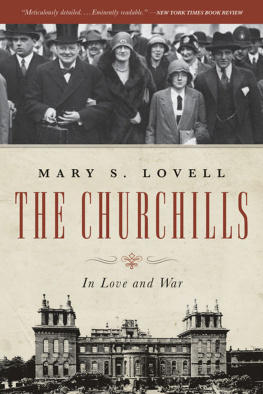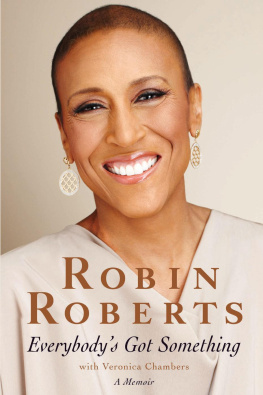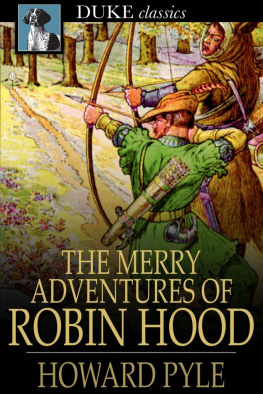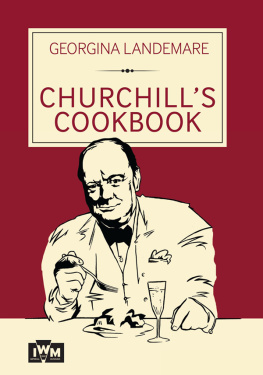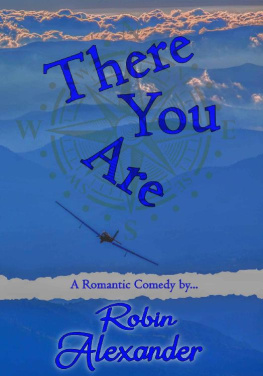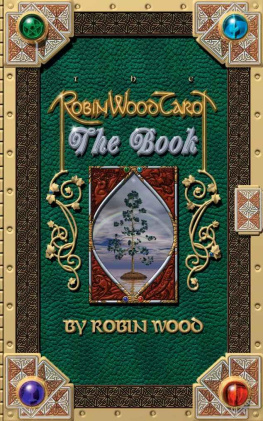Robin Brodhurst - Churchills Anchor
Here you can read online Robin Brodhurst - Churchills Anchor full text of the book (entire story) in english for free. Download pdf and epub, get meaning, cover and reviews about this ebook. year: 2000, publisher: Pen and Sword, genre: Non-fiction. Description of the work, (preface) as well as reviews are available. Best literature library LitArk.com created for fans of good reading and offers a wide selection of genres:
Romance novel
Science fiction
Adventure
Detective
Science
History
Home and family
Prose
Art
Politics
Computer
Non-fiction
Religion
Business
Children
Humor
Choose a favorite category and find really read worthwhile books. Enjoy immersion in the world of imagination, feel the emotions of the characters or learn something new for yourself, make an fascinating discovery.
- Book:Churchills Anchor
- Author:
- Publisher:Pen and Sword
- Genre:
- Year:2000
- Rating:5 / 5
- Favourites:Add to favourites
- Your mark:
- 100
- 1
- 2
- 3
- 4
- 5
Churchills Anchor: summary, description and annotation
We offer to read an annotation, description, summary or preface (depends on what the author of the book "Churchills Anchor" wrote himself). If you haven't found the necessary information about the book — write in the comments, we will try to find it.
Churchills Anchor — read online for free the complete book (whole text) full work
Below is the text of the book, divided by pages. System saving the place of the last page read, allows you to conveniently read the book "Churchills Anchor" online for free, without having to search again every time where you left off. Put a bookmark, and you can go to the page where you finished reading at any time.
Font size:
Interval:
Bookmark:
CHURCHILLS
ANCHOR
CHURCHILLS
ANCHOR
ADMIRAL OF THE FLEET
SIR DUDLEY POUND
OM, GCB, GCVO
BY
ROBIN BRODHURST

First published in Great Britain in 2000 by
LEO COOPER
an imprint of Pen & Sword Books
47 Church Street, Barnsley, South Yorkshire, S70 2AS
Copyright 2000 by Robin Brodhurst
ISBN 0 85052 765 1
A CIP record for this book is available from
the British Library
Typeset by Phoenix Typesetting, Ilkley, West Yorkshire.
Printed in England by
Redwood Books Ltd, Trowbridge, Wiltshire.
DEDICATION
CTB
19541972
CONTENTS
In the course of writing this biography I have incurred countless debts. Principal amongst these is one to the Pound family. All three of Dudley Pounds children have been remarkably helpful: the late George Pound, Martin Pound and the late Barbara Duff. All three answered endless questions and were generous to a fault in their hospitality. Barbaras husband, Dan Duff, too, answered many questions about his father-in-law, to whom he had been Flag Lieutenant in the Mediterranean. William Nesbitt, the editor of the quarterly Pound Family Newsletter, was indefatigable in producing the results of his research into the American ancestors on Dudley Pounds mothers side, as well as the English roots back as far as the 16th century, at the last count. The family was kind enough to ask me to a family reunion held at the Cabinet War Rooms, which allowed me to draw my own family tree and put faces to names. I hope that they feel I have done justice to their distinguished forebear.
I was fortunate to be awarded a Winston Churchill Fellowship for 1998, which allowed me to travel to the USA and carry out research in both Washington and Newport, which I would not have been able to do otherwise. The Trust is an unsung marvel, and I am enormously grateful to the Director General, Sir Henry Beverley.
Many institutions hold relevant manuscript collections, and I have tried to avail myself of all that is useful. There is no collection of Pound papers. Admirals Cunningham and Blake destroyed the majority of his papers after his death, much to the fury of subsequent historians. What is left is scattered across a large number of centres. Principal amongst these is the Public Record Office at Kew, and I am grateful, as is everybody who researches there, to the hard working and patient staff of the Reading Rooms. Churchill College, Cambridge, holds an unrivalled collection of papers of naval officers, as well as the notes and writings of a number of biographies, projected and finished. I am grateful to the Master, Fellows and Scholars of the College, and to Dr Piers Brendan, the Keeper of the Archives at the Churchill Archives Centre, and his various predecessors, for allowing me to work there. I am grateful to the Librarian of the National Maritime Museum for the help given while working there, and to the Manuscripts Division of the British Library. The Imperial War Museum holds a limited number of naval papers, and I am very grateful to Rod Suddaby, the Keeper of the Archives at the Museum, for his help and encouragement.
In the USA I received enormous help and hospitality wherever I went. In Washington I must first thank Bernard Cavalcante at the Operational Archives Branch in the Naval Historical Centre for helping me so much while, at the same time, coping with a declassification visit. Secondly Michael J. Klein of the Manuscript Reference Division of the Library of Congress and thirdly, Barry Zerby and Rick Rayburn at National Archives II at College Park. The National Archives are a challenging place to find ones way round, and both of these two were remarkably helpful to a visiting Limey. At the Naval War College, Newport, Rhode Island, the Librarian, Evelyn M. Cherpak, gave me great assistance. I also received help and guidance from the office of the Defence Attache at the British Embassy. Throughout my time in the USA the mere mention of the Churchill Fellowship opened doors, which might well otherwise have remained closed.
I received great help and guidance from a large number of people. Chief amongst those must be a number of officers and individuals who served with Dudley Pound. The late Captain John Litchfield was kind enough to give me a copy of his projected biography of Dudley Pound, and I have shamelessly used it for much of the evidence of their time together in the Mediterranean. The late Vice Admiral Sir Ronald Brockman was extremely kind in answering many questions. Captains Geoffrey Stanning, John Henley and A. R. Bishop all helped, enlightened and encouraged me. Joan Bright Astley encouraged me with her memories and her enthusiasm. Others have helped in one way or another: Admiral Sir Michael Layard, Vice Admirals Michael Gretton and Sir John Webster with their encouragement and help. The latter read much of the book and corrected me on many naval terms that I had got wrong. James Levy gave me the chance to read his unfinished PhD thesis on Admiral Forbes and the Home Fleet. Eric Grove and Jock Gardner gave their enthusiastic encouragement at various moments. John Lee, Chris McCarthy, Gary Sheffield and other members of the British Commission of Military History have continually exhorted me to finish the book. Ned Willmott first introduced me to naval history when I was a cadet at RMA Sandhurst, and took me to Greenwich to listen to Stephen Roskill. Captain James Goldrick of the Royal Australian Navy was kind enough to turn over to me his initial research papers, which he put together when he was working on Pound. I must also thank three people who have kept me going when the light at the end of the tunnel seemed a very long way off: Field Marshal Lord Bramall, Professor Brian Bond of Kings College, London, and Michael Simpson of Swansea University. All have been helpful in the extreme, and only I know quite how much I owe to all three.
There are four groups of people without whose special support I would never have finished this book: firstly, Leo Cooper, Henry Wilson and my editor Tom Hartman. They rescued the book when it may well have disappeared, and Tom in particular corrected many gross errors in my English. Secondly, my colleagues at Ampleforth and Pangbourne Colleges have had to suffer my continual witterings about my admiral for more years than I care to remember. They have been remarkably tolerant, and I thank them for their support and encouragement. Thirdly, my pupils who have always evinced an interest, partly I suspect because they knew that with luck I would go off on a long red herring. They would be surprised to learn quite how helpful they have been. Finally, my family, who have always helped and supported me: my father, who proofread the entire book, and particularly improved my grammar, my mother and sister who always said the right things, my three step-children who have been quite remarkably tolerant, despite always asking how Douglas Pound was, but above all my wife, Pea, who has literally kept me sane, cooked, cleaned and generally coped while my mind has been at sea or in the Admiralty, and has provided the inspiration without which this book could not have been written. Despite all of this help I alone am responsible for the mistakes and errors contained.
Robin Brodhurst.
Stanford Dingley.
Summer 2000.
For permission to quote I am very grateful to a number of people.
Crown copyright is reproduced with the permission of the Controller of Her Majestys Stationery Office.
Parliamentary copyright material from Hansard is reproduced with the permission of the Controller of Her Majestys Stationery Office on behalf of Parliament.
Bloomsbury Publishing Plc for extracts from
Next pageFont size:
Interval:
Bookmark:
Similar books «Churchills Anchor»
Look at similar books to Churchills Anchor. We have selected literature similar in name and meaning in the hope of providing readers with more options to find new, interesting, not yet read works.
Discussion, reviews of the book Churchills Anchor and just readers' own opinions. Leave your comments, write what you think about the work, its meaning or the main characters. Specify what exactly you liked and what you didn't like, and why you think so.

